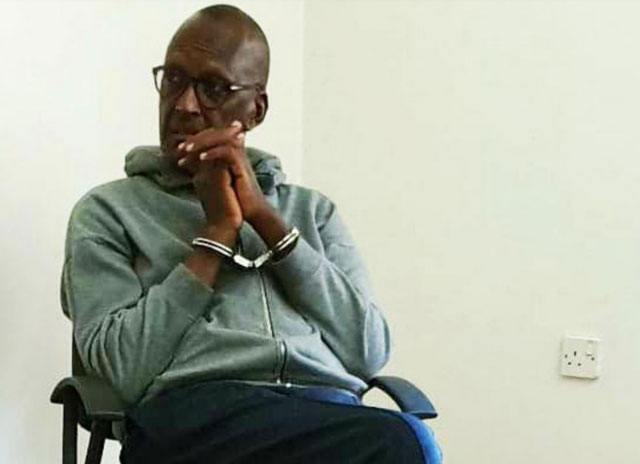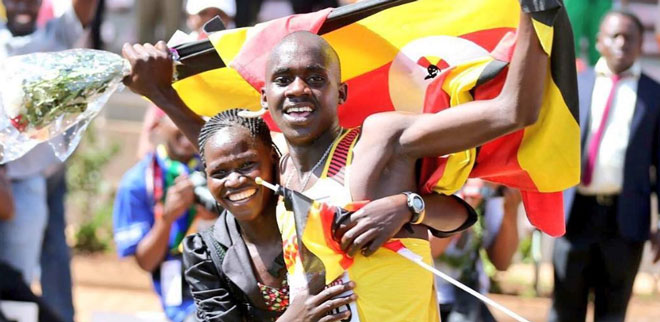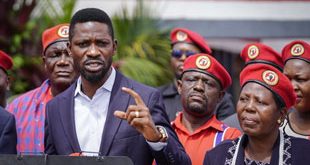
People who know the president and who spoke to The Independent on condition of anonymity say the way the president handled the issue was very Musevenisque, reflecting his political and military brinkmanship.
Sources say Museveni’s aim was not to punish exhibited disloyalty but to diffuse it in a way that would not create political speculations.
It is on this basis that he decided that he needed to first divide the coalition of Bahima generals that were aligning against him. The key person to divide and break this coalition, sources say, was Tumukunde whom he reasoned that he was excessively ambitious, power and money hungry.
Museveni’s strategy was to give Tumukunde a bait, which would lure him into his inner sanctum and thereby stop him from further plots.
Secondly, Tumukunde was brought back into the fold in order to divide and conquer the groups of Tinyefunza, Nyakairima and other Bahima generals and officers who may have shared sympathy with them.
Tumukunde did not have to reveal anything to Museveni. His presence back in government would suggest that he sold all the secrets of their plot to the president, enough to cause such internal discord and confusion in the group thereby making it hard to cohere and organize against the president.
Tumukunde, however, seem to have understood Museveni strategy much better. Indeed, in all his interviews after declaring his desire to seek the presidency on March 03, he kept warning everyone not to give Museveni a chance to divide the opposition.
Sources told The Independent that Tumukunde knows that the biggest threat to opposition is unity and therefore strength is the belief within its ranks that Museveni has compromised some of their members.
And how does Museveni do this? Sources reveal that he arranges a meeting with one opposition figure where they discuss little or nothing. Often in such a meeting, the opposition politician will have held his or her ground and told the president the truths as they see it.
However, when such a meeting leaks to the public, opposition activists go on rampage denouncing such a person as having been bought. The more their campaign of vilification intensifies, the more such an opposition figures feels the wrath of his/her own comrades, sees their intolerance and fascist tendencies.
With time, such people begin to feel Museveni and his NRM as a better political alternative, more tolerant and accommodating than the opposition. The end result is for such a person to cross over to the NRM, according to sources.
Knowing this, Tumukunde, is said to have realised that he needed to be released from the army if he was to ever challenge Museveni for the presidency.
He also needed to weaken the government from within by antagonizing it with its internal and external allies and even dent its credibility among the public.
Returning to government, sources say, was to give him a chance to make money, an important political resource for his presidential ambitions.
With this strategy in his mind, the sources add, that the mental duel between Museveni and Tumukunde, commander and soldier, had begun.
Tumukunde and the pundits
Independent political pundits that The Independent spoke to appear to agree with Tumukunde’s reading of Museveni’s political strategy.
Crispin Kaheru, the former coordinator of Citizens’ Coalition for Electoral Democracy in Uganda (CCEDU) said, the growing opposition has to join hands together if they are to remove Museveni from power.
“Right now the opposition is fragmented,” he said, “even with the current political parties in place, Uganda is still under the era of individual merit.”
Kaheru said it is important for the opposition to first unite at the political party level or political formation level and then have a coalescing of around ideas of alternative views to the government position.
“If that is not happening then the opposition and Museveni are one and the same…they are just individuals seeking power,” he said.
 The Independent Uganda: You get the Truth we Pay the Price
The Independent Uganda: You get the Truth we Pay the Price




What goes around come around. Because of what he did in order to come to and hold onto power, Mr. Museveni has no moral authority to complain or get angry over his soldiers or anybody plotting to eject him. In other words, if he had left power 25 year ago, he would have had his peace, with a quasi statesmanship. But because he didn’t, he has to be running and hiding for his life inside State House.
On “Democracy and Freedom”; in his book Escape from Freedom, Eric Fromm says that a successful revolutionary is a statesman. But the unsuccessful revolutionary is a criminal. In other words, instead becoming a statesman, in 34 years, Mr. Museveni ended up becoming a wanted criminal, who has to hole himself up in State House in order to avoid serious criminal prosecution.
Mr O, why waste your time spewing shit?? You should have used the time to quarantine yourself, because you may infect others with your spew shit.
But John, for kids Kaka means shit!
By clinging to power at all cost, president M7 has also put his son, Muhoozi in harms way. Like for example, by appointing his son Muhoozi and step brother as Senior presidential Advisors on Security; how can Mr. Museveni avoid being accuse of nepotism and/or familism? No wonder Allan Tacca, the Sunday Monitor’s Columnist (Cynic) one time commented that Muhoozi’s smile is like something extracted from a place full of pain.